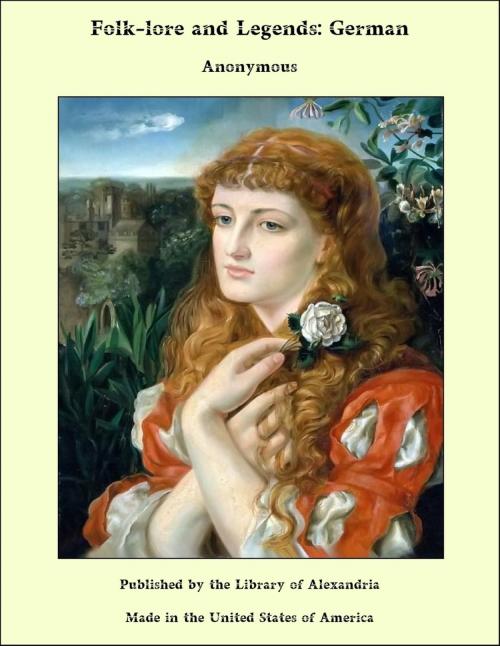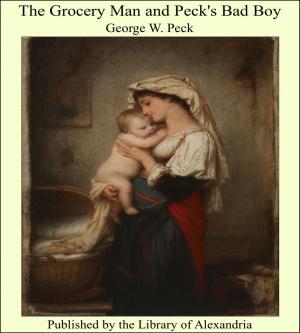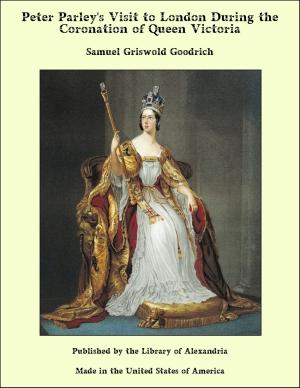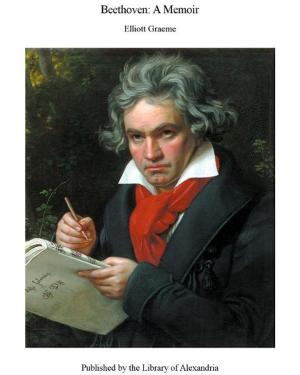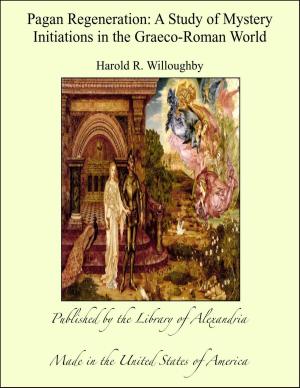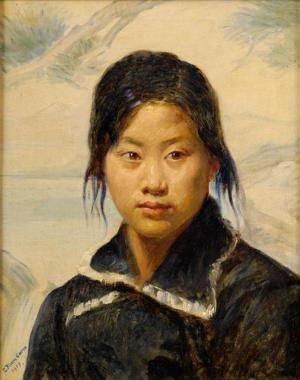Folk-lore and Legends: German
Nonfiction, Religion & Spirituality, New Age, History, Fiction & Literature| Author: | Anonymous | ISBN: | 9781613108277 |
| Publisher: | Library of Alexandria | Publication: | March 8, 2015 |
| Imprint: | Language: | English |
| Author: | Anonymous |
| ISBN: | 9781613108277 |
| Publisher: | Library of Alexandria |
| Publication: | March 8, 2015 |
| Imprint: | |
| Language: | English |
The peasant's tale, the story preserved through centuries on the lips of old wives, the narrative which has come down to us having done duty as a source of amusement in the fireside groups of preceding generations, may seem to some to afford slight matter for reflection, and may even appear so grotesque in its incidents as to be fitted only to excite a smile of wonder at the simplicity of those among whom such stories could obtain reception, and surprise at the fantastic imagination in which such tales could find their origin. Modern thought has, however, been busy asking itself what is the meaning of these stories, and it has done much to supply itself with an answer. This, at least, it has done: it has discovered that these legends and tales, which so many have been inclined to cast aside as worthless, are of a singular value, as throwing a light which little else can afford upon the mind of primitive man. At first the collection of national stories was undertaken merely for the purpose of affording amusement. Folk-tales were diverting, so they found their way into print, and were issued as curious literary matter fitted to supply diversion for a vacant hour. Many of the tales are very beautiful, and their mere literary merit sufficed to make them sought for. But legendary lore was soon observed to possess much more value than could attach to its merely amusing features. It was obvious that in these legends were preserved the fragments of the beliefs of the ancient folk. "The mythology of one period," remarked Sir Walter Scott, "would appear to pass into the romance of the next century, and that into the nursery tale of the subsequent ages." "Fiction," said Sir John Malcolm, "resolves itself into its primitive elements, as, by the slow and unceasing action of the wind and rain, the solid granite is crumbled into sand. The creations embodied by the vivid imagination of man in the childhood of his race incorporate themselves in his fond and mistaken faith. Sanctity is given to his daydreams by the altar of the idol. Then, perhaps, they acquire a deceitful truth from the genius of the bard. Blended with the mortal hero, the aspect of the god glances through the visor of the helmet, or adds a holy dignity to the royal crown. Poetry borrows its ornaments from the lessons of the priests. The ancient god of strength of the Teutons, throned in his chariot of the stars, the Northern Wain, invested the Emperor of the Franks and the paladins who surrounded him with superhuman might. And the same constellation, darting down its rays upon the head of the long-lost Arthur, has given to the monarch of the Britons the veneration which once belonged to the son of 'Uthry Bendragon,' 'Thunder, the supreme leader,' and 'Eygyr, the generating power.'
The peasant's tale, the story preserved through centuries on the lips of old wives, the narrative which has come down to us having done duty as a source of amusement in the fireside groups of preceding generations, may seem to some to afford slight matter for reflection, and may even appear so grotesque in its incidents as to be fitted only to excite a smile of wonder at the simplicity of those among whom such stories could obtain reception, and surprise at the fantastic imagination in which such tales could find their origin. Modern thought has, however, been busy asking itself what is the meaning of these stories, and it has done much to supply itself with an answer. This, at least, it has done: it has discovered that these legends and tales, which so many have been inclined to cast aside as worthless, are of a singular value, as throwing a light which little else can afford upon the mind of primitive man. At first the collection of national stories was undertaken merely for the purpose of affording amusement. Folk-tales were diverting, so they found their way into print, and were issued as curious literary matter fitted to supply diversion for a vacant hour. Many of the tales are very beautiful, and their mere literary merit sufficed to make them sought for. But legendary lore was soon observed to possess much more value than could attach to its merely amusing features. It was obvious that in these legends were preserved the fragments of the beliefs of the ancient folk. "The mythology of one period," remarked Sir Walter Scott, "would appear to pass into the romance of the next century, and that into the nursery tale of the subsequent ages." "Fiction," said Sir John Malcolm, "resolves itself into its primitive elements, as, by the slow and unceasing action of the wind and rain, the solid granite is crumbled into sand. The creations embodied by the vivid imagination of man in the childhood of his race incorporate themselves in his fond and mistaken faith. Sanctity is given to his daydreams by the altar of the idol. Then, perhaps, they acquire a deceitful truth from the genius of the bard. Blended with the mortal hero, the aspect of the god glances through the visor of the helmet, or adds a holy dignity to the royal crown. Poetry borrows its ornaments from the lessons of the priests. The ancient god of strength of the Teutons, throned in his chariot of the stars, the Northern Wain, invested the Emperor of the Franks and the paladins who surrounded him with superhuman might. And the same constellation, darting down its rays upon the head of the long-lost Arthur, has given to the monarch of the Britons the veneration which once belonged to the son of 'Uthry Bendragon,' 'Thunder, the supreme leader,' and 'Eygyr, the generating power.'
